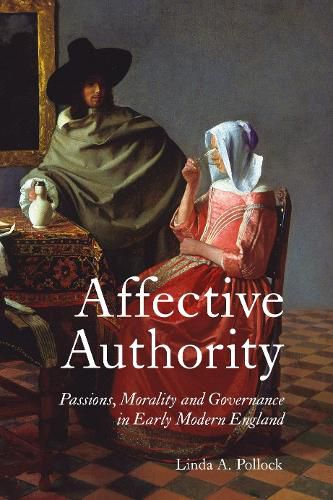Readings Newsletter
Become a Readings Member to make your shopping experience even easier.
Sign in or sign up for free!
You’re not far away from qualifying for FREE standard shipping within Australia
You’ve qualified for FREE standard shipping within Australia
The cart is loading…






Throws new light on the history of emotions, as well as on cultural norms and elite governance in early modern English society.
This book investigates the intimate connection between emotion and morality in the landed ranks in England from 1580 to 1700, reintegrating the artificially separated spheres of emotions and ethics. It argues that, long before the "modern" eighteenth century, emotions lay at the core of early modern ethics: virtues and passions were fused and affect underpinned authority. Passions, affections, and ethics were intertwined and must be understood together: feelings enabled and constituted ethical conduct and were often mandated obligations, while cultural norms were based on affective concepts. Through a detailed analysis of four key affective values - love, gratitude, repentance and obedience - the book throws new light on the history of emotions, as well as on cultural norms and elite governance in early modern English society. The book merges social, cultural and intellectual history. It explores how ideals and concepts were practiced in daily life, emphasizes the importance of the domestic, familial world for the understanding and exercise of public authority and governance, and insists on the centrality of the passions and affections to early modern morality. It contributes to the history of emotions by reconnecting affect and ethics, advances the history of English society by showing how authority was based on affect, thus demonstrating the relevance of emotion to larger historical issues.
$9.00 standard shipping within Australia
FREE standard shipping within Australia for orders over $100.00
Express & International shipping calculated at checkout
Throws new light on the history of emotions, as well as on cultural norms and elite governance in early modern English society.
This book investigates the intimate connection between emotion and morality in the landed ranks in England from 1580 to 1700, reintegrating the artificially separated spheres of emotions and ethics. It argues that, long before the "modern" eighteenth century, emotions lay at the core of early modern ethics: virtues and passions were fused and affect underpinned authority. Passions, affections, and ethics were intertwined and must be understood together: feelings enabled and constituted ethical conduct and were often mandated obligations, while cultural norms were based on affective concepts. Through a detailed analysis of four key affective values - love, gratitude, repentance and obedience - the book throws new light on the history of emotions, as well as on cultural norms and elite governance in early modern English society. The book merges social, cultural and intellectual history. It explores how ideals and concepts were practiced in daily life, emphasizes the importance of the domestic, familial world for the understanding and exercise of public authority and governance, and insists on the centrality of the passions and affections to early modern morality. It contributes to the history of emotions by reconnecting affect and ethics, advances the history of English society by showing how authority was based on affect, thus demonstrating the relevance of emotion to larger historical issues.